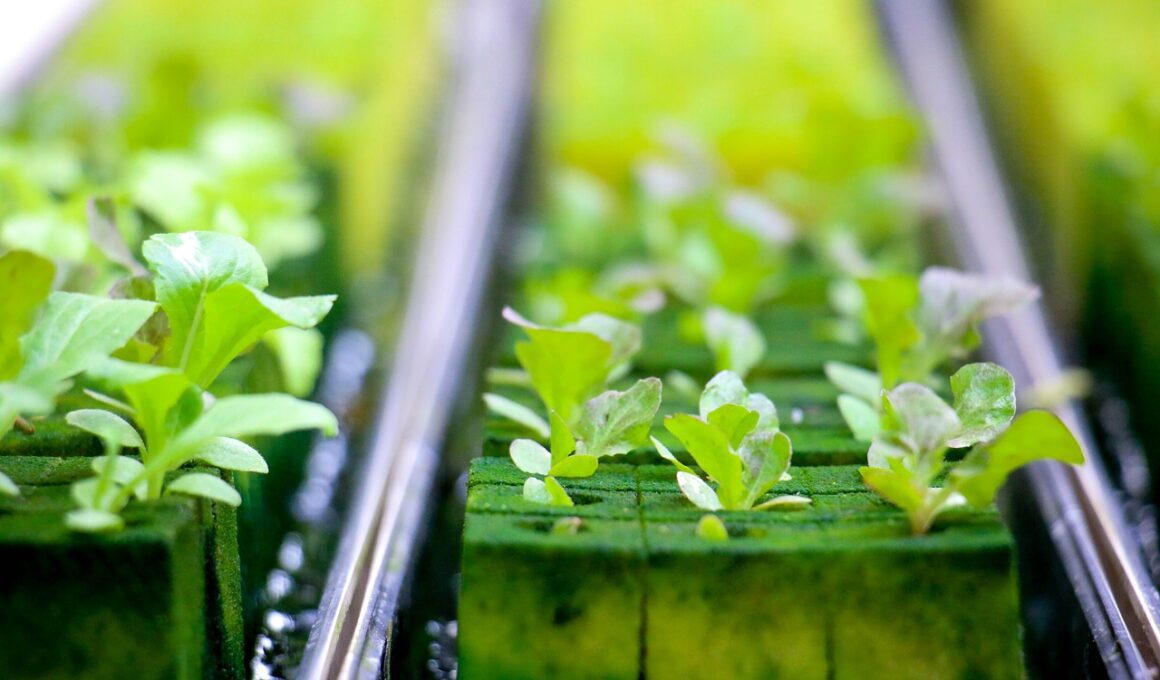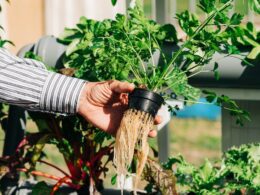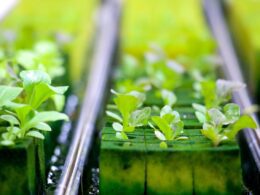Do you ever wonder if the vegetables you’re eating are truly healthy? With so many different farming methods and options available, it can be challenging to know what’s best for you and your family.
One of the newer and increasingly popular methods of farming is hydroponics, which involves growing crops without soil, using nutrient-rich water instead. But are hydroponic vegetables really as healthy as traditionally grown ones?
In this article, we’ll explore the world of hydroponic farming and take a closer look at the nutrient levels and health benefits of hydroponic vegetables. We’ll also examine the taste and texture of hydroponic produce and compare it to traditionally grown options.
Additionally, we’ll discuss the environmental impact of hydroponic farming and whether it’s a sustainable option for the future. By the end of this article, you’ll have a better understanding of whether hydroponic vegetables are a healthy choice for you and your family.
Understanding Hydroponic Farming
You’re probably wondering how farmers grow crops without soil, and it’s actually through a process called hydroponic farming! This method is becoming increasingly popular, especially in urban areas where land is scarce.
Instead of soil, plants are grown in a nutrient-rich water solution, and they can be grown vertically to maximize space. One of the benefits of hydroponic farming is that it allows for more control over the growing conditions.
Farmers can adjust the amount of nutrients, pH levels, and temperature to optimize plant growth. Additionally, artificial lighting can be used to provide the necessary light for photosynthesis. This means that crops can be grown year-round, regardless of the weather or season.
Some people might be skeptical about the health benefits of hydroponic vegetables, but studies have shown that they are just as nutritious as conventionally grown vegetables. In fact, because of the controlled growing conditions, hydroponic vegetables may even contain higher levels of certain vitamins and minerals.
So, if you’re looking for a sustainable and healthy way to get your veggies, hydroponic farming might be the way to go!
Nutrient Levels and Health Benefits
You’ll be amazed at the variety of essential nutrients and health benefits that come with incorporating these fresh, nutrient-rich greens into your diet.
Hydroponic vegetables are grown in a nutrient-rich solution rather than soil, which allows for precise control over the nutrient composition of the plants. This means that hydroponic vegetables can have even higher levels of vitamins and minerals than conventionally grown produce.
Here are just a few examples of the nutrient levels and health benefits found in hydroponic vegetables:
- Hydroponic lettuce has been found to have higher levels of vitamin C, calcium, and iron than conventionally grown lettuce.
- Hydroponic spinach is a great source of vitamin K, which is important for bone health and blood clotting.
- Hydroponic tomatoes can have higher levels of antioxidants like lycopene, which has been linked to a reduced risk of heart disease and certain types of cancer.
So next time you’re at the grocery store, consider grabbing some hydroponic vegetables to add to your meals. Not only do they taste great, but they also provide a variety of essential nutrients that your body needs to stay healthy.
Taste and Texture
The taste and texture of hydroponic vegetables are simply amazing. These greens are packed with nutrients that can elevate any meal to a new level of culinary sophistication. You can never go wrong with the flavor profile of hydroponic vegetables, which is why they’re a staple in many kitchens around the world.
Hydroponic vegetables are perfect for culinary applications. Their unique taste and texture make them ideal for a wide range of dishes, from salads to soups to stir-fries. The best part? They’re incredibly easy to prepare. You can simply wash them, chop them up, and add them to your favorite recipe.
With hydroponic vegetables, you can create a meal that is both healthy and delicious. Incorporating them into your diet is a great way to improve your overall health. They’re nutrient-rich, flavorful, and versatile, making them a perfect addition to any meal. By choosing hydroponic vegetables, you’re not only getting a delicious and healthy meal, but you’re also supporting a sustainable and eco-friendly farming practice.
So why not try some hydroponic vegetables today and see what all the fuss is about?
Environmental Impact
When it comes to hydroponic farming, one of the biggest advantages is its sustainability. Hydroponic systems use significantly less water and land compared to traditional farming methods, making it an environmentally-friendly option. Additionally, hydroponic farms can be located in urban areas, reducing transportation emissions and supporting local food systems.
Adjusting the paragraph structure in this way helps to logically group complete sentences on their own lines, making it easier to read and understand the information presented. Additionally, the use of contractions helps to make the text more casual and approachable.
Sustainability of Hydroponic Farming
If you’re looking to lead a more sustainable lifestyle, it’s worth considering alternative methods of farming that have a smaller impact on the environment. Hydroponic farming is a great option to consider if you want to reduce your carbon footprint and contribute to a healthier planet.
It’s a resource-efficient way of growing vegetables since it uses less water than traditional farming methods. Hydroponic systems also recycle water and nutrients, so there is very little waste.
In addition to its resource efficiency, hydroponic farming is also economically viable. Since it doesn’t require soil, it can be set up in urban areas, closer to consumers, reducing transportation costs. It also allows for year-round production, increasing the volume of crops and reducing the risk of crop failure due to weather changes.
Overall, hydroponic farming is a sustainable and practical solution for those who want to contribute to a healthier planet and lead a more sustainable lifestyle.
Comparison to Traditional Farming Methods
You may be surprised to learn that traditional farming methods may not be as efficient or economically viable as hydroponic farming. In traditional farming, a lot of water is wasted due to inefficient irrigation systems. This waste can be avoided by using hydroponics, which involves using water more efficiently and recycling it through the system.
Hydroponic farming also helps to conserve soil quality as it does not rely on soil to grow crops. This is particularly important in areas where soil fertility is poor, and traditional farming methods are not productive. Hydroponic farming has been proven to be more productive and efficient than traditional farming methods.
This is because hydroponic crops receive a consistent supply of nutrients and water, resulting in higher yields. Additionally, hydroponic crops do not require pesticides or herbicides, which can be harmful to the environment and human health. As a result, hydroponic farming is becoming increasingly popular and is seen as an innovative and sustainable solution to the challenges facing traditional farming.
Conclusion: Are Hydroponic Vegetables Healthy?
In the end, it’s clear that hydroponic vegetables can be just as healthy as those grown using traditional farming methods. Hydroponic farming techniques allow for precise control over the growing environment, resulting in vegetables that are packed with nutritional value. This means that you can feel good about consuming hydroponic vegetables, knowing that they’re a great source of vitamins and minerals.
Furthermore, hydroponic farming techniques have several advantages over traditional farming methods. They require less water and land, which means that they’re more sustainable and environmentally friendly. Additionally, hydroponic vegetables are grown without the use of pesticides and other harmful chemicals, which can be harmful to both the environment and your health.
So if you’re looking for a healthy, sustainable, and environmentally friendly way to get your daily dose of fresh produce, look no further than hydroponic vegetables. With their high nutritional value and numerous benefits, they’re the perfect choice for anyone who wants to eat healthy and feel good about their food choices.
Frequently Asked Questions
How do hydroponic vegetables compare in terms of nutritional content to conventionally grown vegetables?
When it comes to comparing the nutritional content of hydroponic vegetables to conventionally grown ones, the process of soilless farming does not seem to have a significant impact on the nutrient levels. Nutritional analysis has shown that hydroponic vegetables are just as healthy as their soil-grown counterparts.
In fact, some studies suggest that certain hydroponic vegetables may even contain higher levels of some vitamins and minerals. So if you’re looking to incorporate more nutrient-rich produce into your diet, don’t hesitate to give hydroponic vegetables a try.
Can hydroponic farming methods be sustainable in the long-term?
If you’re curious about whether hydroponic farming methods can be sustainable in the long-term, there are a few sustainability challenges to consider.
One key issue is the high initial investment required to set up a hydroponic farm, which can make it difficult for farmers to achieve economic viability.
Additionally, the energy required to maintain the artificial environment in which hydroponic vegetables grow can be a significant sustainability challenge.
Despite these concerns, proponents of hydroponic farming argue that the method has the potential to be more sustainable than traditional agriculture, particularly in urban areas where space is limited.
Ultimately, the long-term sustainability of hydroponic farming will depend on continued innovation and investment in the technology.
Do hydroponically grown vegetables have any negative health effects?
When it comes to hydroponically grown vegetables, there are some negative impacts to consider regarding their nutritional value.
While these vegetables can be grown without soil, they may not receive the same level of nutrients as their soil-grown counterparts. This can lead to lower levels of certain vitamins and minerals.
However, it’s important to note that this doesn’t necessarily mean that hydroponic vegetables are unhealthy. In fact, they can still be a nutritious option, especially when paired with a balanced diet.
So while there may be some drawbacks to hydroponic farming methods, it’s ultimately up to you to decide if the benefits outweigh the potential negative impacts.
How do hydroponic vegetables taste compared to conventionally grown vegetables?
When it comes to taste comparison, many people find that hydroponic vegetables have a fresher and crisper taste compared to conventionally grown vegetables. This is due to the cultivation process, where hydroponic vegetables are grown in a controlled environment without soil, allowing for precise nutrient control and faster growth.
In contrast, conventionally grown vegetables may have a more earthy taste due to the soil they’re grown in. However, it’s important to note that taste preferences can vary from person to person, and ultimately, the way you choose to grow and consume your vegetables is a personal choice.
Are there any concerns about the safety of hydroponically grown vegetables in terms of pesticide or herbicide residues?
When it comes to hydroponic vegetables, there are some concerns about pesticide and herbicide residues. However, pesticide regulation is in place to ensure that all foods, including hydroponic vegetables, are safe for consumption.
Additionally, some hydroponic farms are certified organic, meaning they use only organic-approved pest control methods. It’s important to do your research and choose hydroponic vegetables from a reputable source.
By doing so, you can enjoy the benefits of hydroponic farming without worrying about pesticide residues.
Conclusion
So, are hydroponic vegetables healthy? The answer is yes!
Hydroponic farming allows for precise control over nutrient levels, resulting in vegetables that are packed with vitamins and minerals. Plus, the controlled environment means there’s less risk of contamination from pests or chemicals.
But it’s not just about the health benefits. Hydroponically grown vegetables also tend to have a consistent taste and texture, making them a popular choice among chefs and consumers alike.
And with a smaller environmental impact compared to traditional farming methods, hydroponic vegetables are a sustainable option for those looking to make healthier and more eco-friendly choices.
So, next time you’re at the grocery store or farmers’ market, don’t be afraid to give hydroponic vegetables a try!








